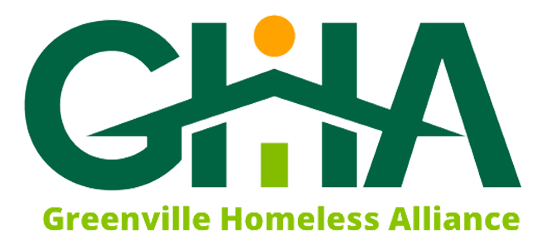Who is Facing an Economic Recovery or Continued Crisis?
Data shows that the economy is responding well to the COVID-19 vaccination progress and the large federal stimulus efforts last year and this year. However, our assessment of the economic situation leads us to believe that despite this progress there are pockets of ongoing suffering that require continued efforts to assist those most missed by the gains. Emergency shelters in Greenville County continue to remain full and the Salvation Army of Greenville County men’s emergency shelter reports increased daily calls as the July 31 eviction moratorium comes to a close. This blog post will review the ongoing recovery from COVID-19 in the general economic situation, the economic impact among different groups, the government’s stimulus efforts, and the housing situation. We close with a discussion of the efforts at the Greenville Homeless Alliance and the Greenville community to provide housing relief.
National data on the state of the economy reveal a substantial bounce from levels of a year ago as evidence from output, sales, and employment data. However, the economy is not back to normal as the levels for these variables remain below their peaks reached prior to the pandemic and well below trend levels. Here too in South Carolina and Greenville the economies are on a recovery path. Despite the overall economic growth there is unevenness below the topline numbers reported in the media.
Job openings by businesses have nationally reached and exceeded pre-pandemic levels as have job postings in South Carolina. Business have reported difficulty in finding workers with many putting the blame on the supplemental unemployment benefits and some states are cutting these benefits, including South Carolina. However, there are other mitigating factors such as families needing childcare, former employees taking early retirement, people rethinking their career options after the pandemic, and ongoing concerns over COVID-19 and vaccinations. Despite the bright picture for job openings, small businesses in Greenville have suffered with the number of small businesses decreasing by 28 percent and revenues falling by 33 percent from January, 2020.
Even though business are having a difficult time filling openings, generally employment has rebounded to pre-pandemic levels. Employment for women has not rebounded to the extent it has for men which indicates that childcare and slower growth in sectors such as hospitality and leisure might be important causes. In the Greenville, Anderson and Mauldin area, employment in this industry remains below the pre-pandemic level whereas the labor force and total employment are above. Also, employment growth for low wage earners has not returned to its former peak which it has for high and middle wage earners.
Income is important as the Greenville Homeless Alliance focuses efforts at an income earned by working 40 hours a week at minimum wage of $7.25/hour which equals roughly $15,000 a year. Affordable monthly housing costs should equal $375 or less to allow for non-housing essentials. The reality in Greenville County is 86 hours of work is required to afford a modest one-bedroom rental home at fair market rent according to the Out of Reach 2021: South Carolina report from the National Low Income Housing Coalition. Affordable – rental or owner occupied - is defined from the early 20th century to the advent of FHA and afterwards as 30% of gross monthly income. Greenville County has the highest number (32,284) of renter households in South Carolina who are eligible for housing stabilization funds but are not receiving it according to the 2021 South Carolina Housing Needs Assessment by SC Housing.
The effects of selected federal pandemic programs show that in the first quarter of 2021 these expenditures accounted for 13 percent of South Carolinians’ personal income. COVID-19 programs had been tapering off throughout 2020 but surged in the first quarter in 2021. Monthly poverty rates have reflected the beneficial effects of federal COVID-19 programs, but current estimates show a rise in the poverty rates overall, especially for Black and Latinx groups in April and May.
The Census’ Household Pulse Survey reveals some improvement for South Carolina in that fewer households expect an income loss from employment and difficulty with food scarcity, and there is a slight decline in households experiencing difficulty paying for household expenses. However, households continue to expect the same likelihood of eviction or foreclosure as earlier in the pandemic. According to the Eviction Lab, eviction filings have increased but are below the 2016-2019 average; Greenville had 1,900 filings from April through June. Furthermore, data from the Federal Reserve, has consistently shown that a significant number of households would not be able to meet an emergency of 400 dollars. A significant portion of households likely have not recovered from their inability to pay rents and mortgages during the depths of decline in employment when COVID-19 struck with full force early last year. With the State’s moratorium on evictions ended and the Center for Disease Control’s moratorium lifting at the end of July, most experts anticipate a considerable rise in eviction filings and eventually evictions.
The Greenville Homeless Alliance is working with leadership from public and private partners to transform homelessness in Greenville County. Rent and utility assistance is available from Greenville County. Recently GHA partner, Martin Watson with Greenville County Human Relations Commission provided an educational video on evictions. Lorain Crowl of United Housing Connections presented the unified efforts from the American Recuse Plan alongside best practices from Rethinking Homelessness at the July 22 Stakeholder meeting. You can view the July 22 slides HERE and see the recording HERE. We hope you will join efforts to ignite change towards ending homelessness in our community. If you have any doubts, watch this recording of mOody bLaCk who inspired stakeholders with his poem, “Homeless.”
- Susan McLarty, Greenville Homeless Alliance Coordinator and Robert Arden, Ph.D. Economist
